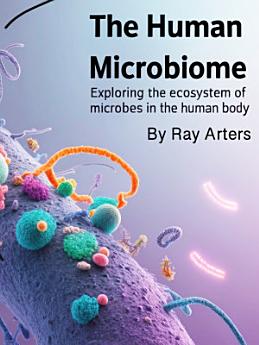The Human Microbiome: Exploring the Ecosystem of Microbes in the Human Body
About this ebook
The journey toward understanding the human microbiome began with the pioneering work of Antonie van Leeuwenhoek in the seventeenth century, who first observed microorganisms in human dental plaque using his revolutionary microscopes. His descriptions of "animalcules" living in the human mouth provided the first glimpse into the microbial world that inhabits our bodies, though the significance of these observations would not be fully appreciated for centuries. The development of microbiology in the nineteenth century, particularly through the work of Louis Pasteur and Robert Koch, established the germ theory of disease and focused scientific attention on pathogenic microorganisms, creating a paradigm that viewed microbes primarily as enemies to be eliminated rather than as potential partners in human health.







